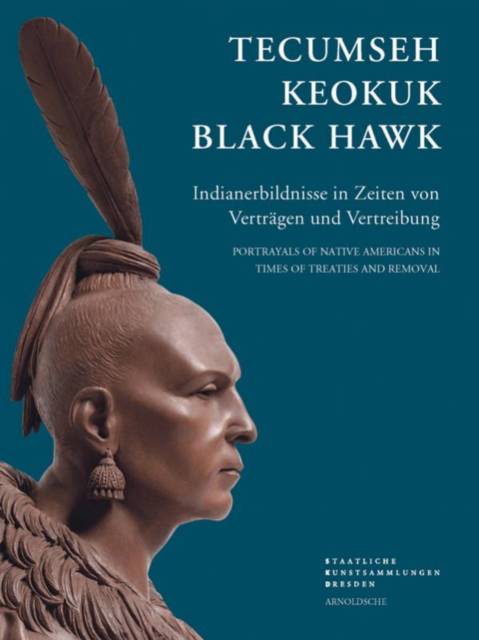
Bedankt voor het vertrouwen het afgelopen jaar! Om jou te bedanken bieden we GRATIS verzending (in België) aan op alles gedurende de hele maand januari.
- Afhalen na 1 uur in een winkel met voorraad
- In januari gratis thuislevering in België
- Ruim aanbod met 7 miljoen producten
Bedankt voor het vertrouwen het afgelopen jaar! Om jou te bedanken bieden we GRATIS verzending (in België) aan op alles gedurende de hele maand januari.
- Afhalen na 1 uur in een winkel met voorraad
- In januari gratis thuislevering in België
- Ruim aanbod met 7 miljoen producten
Zoeken
Tecumseh, Keokuk, Black Hawk
Portraits of Indians in the Era of Treaties
Iris Edenheiser, Astrid Nielsen
Hardcover | Engels
€ 51,95
+ 103 punten
Omschrijving
The colonization of the world by European powers led to the production of a wealth of images of the colonized cultures and peoples. Images of North American Indians play an important role in our visual culture. This publication illuminates how they are represented, as well as their political and historico-cultural background, based on the so-called 'Indian Museum' of the Dresden sculptor Ferdinand Pettrich (1798-1872). In the 1830s, Pettrich traveled to Washington and portrayed representatives of Indian tribes in 33 reliefs, statues, busts and bozzetti made of terracotta-colored plaster. These tribes were negotiating treaties with the US government about the future usage of the land. Pettrich's ouvre is an early example of the recurring motif of North American Indians in European and Euro-American art. The classically-influenced forms of these representations, the influence of the simultaneously emerging 'Indian painting', as well as the lasting fascination of the subject of 'Indians' are presented here, along with the political context of the era the works were created in. Text in English and German.
Specificaties
Betrokkenen
- Auteur(s):
- Uitgeverij:
Inhoud
- Aantal bladzijden:
- 200
- Taal:
- Engels
Eigenschappen
- Productcode (EAN):
- 9783897904002
- Verschijningsdatum:
- 29/10/2013
- Uitvoering:
- Hardcover
- Formaat:
- Genaaid
- Afmetingen:
- 213 mm x 274 mm
- Gewicht:
- 1111 g

Alleen bij Standaard Boekhandel
+ 103 punten op je klantenkaart van Standaard Boekhandel
Beoordelingen
We publiceren alleen reviews die voldoen aan de voorwaarden voor reviews. Bekijk onze voorwaarden voor reviews.









